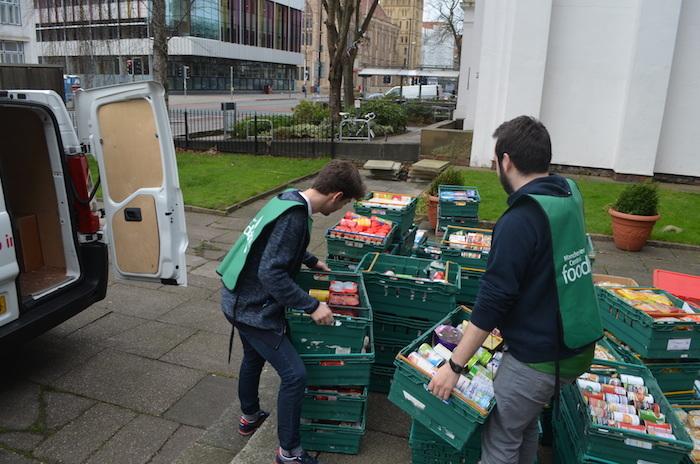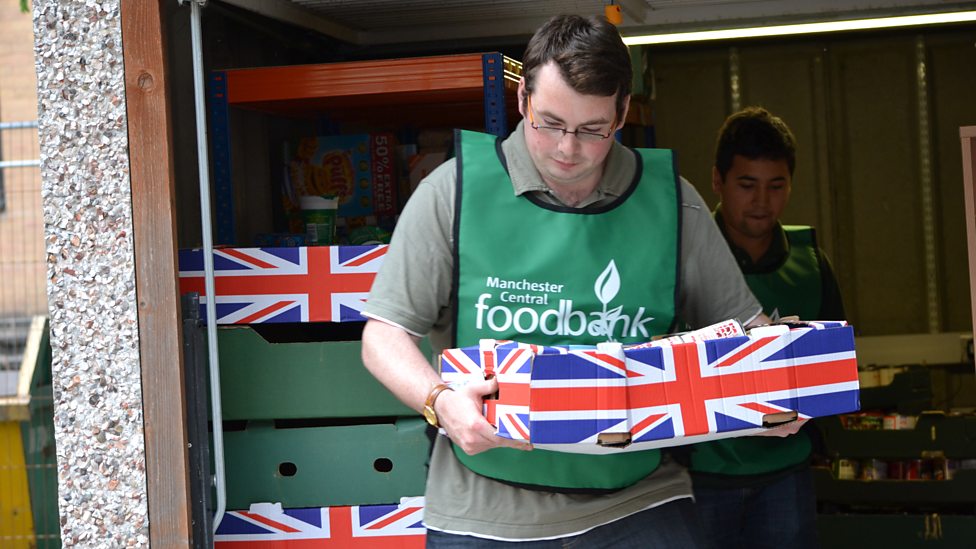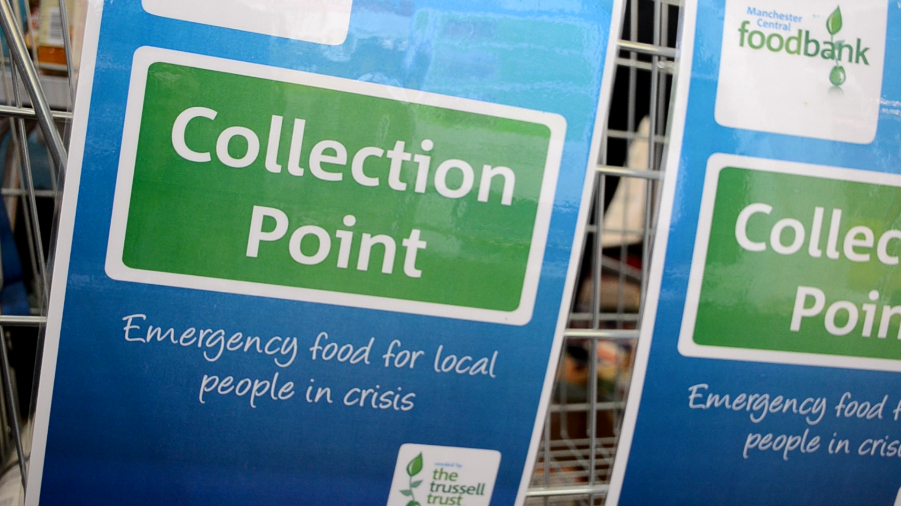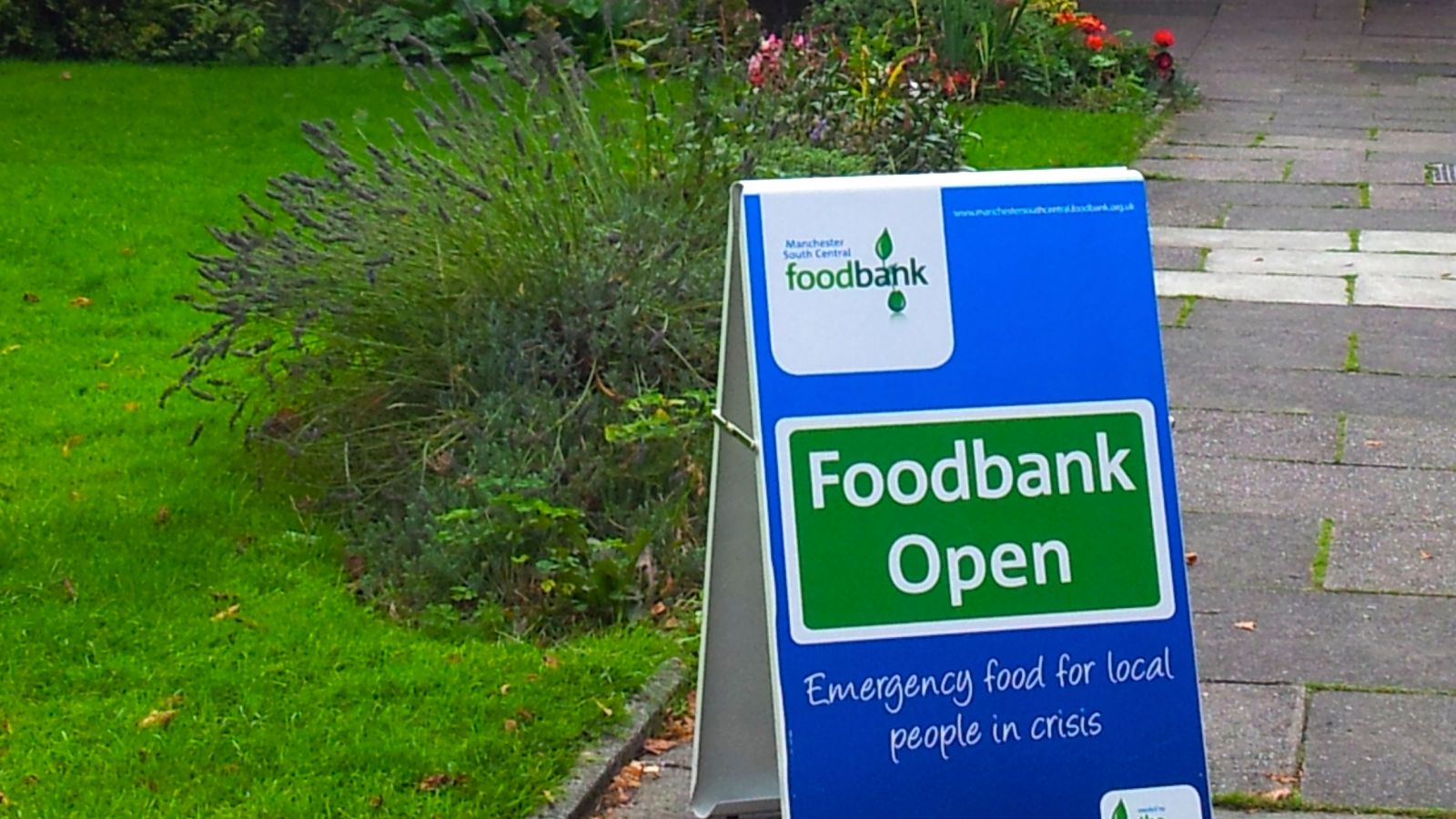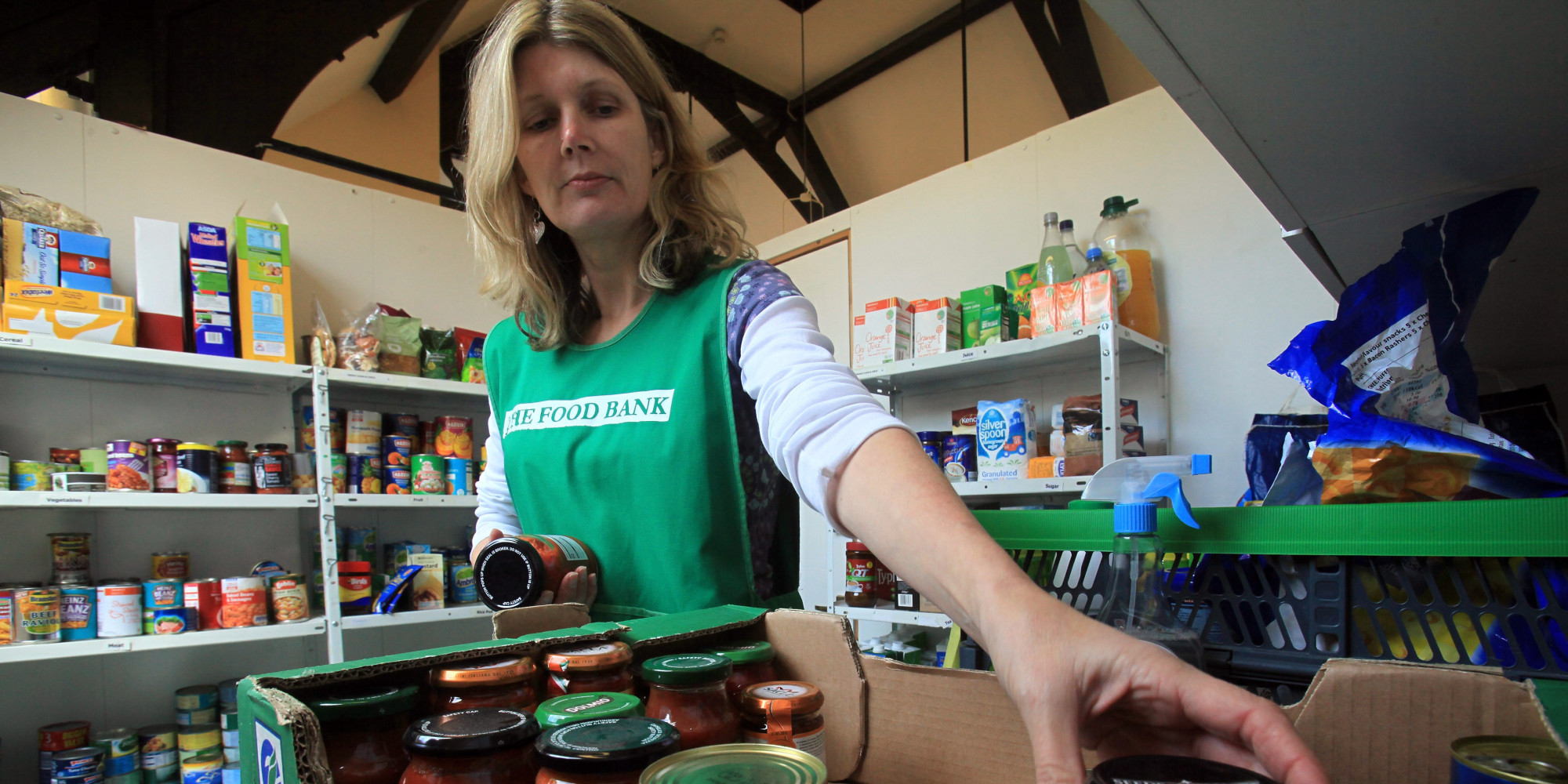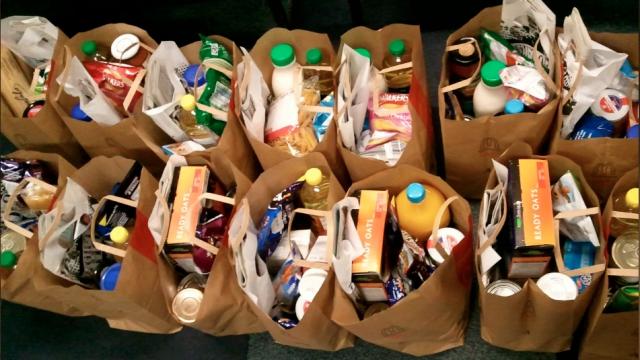
Nestled in the Manchester Universities’ Catholic Chaplaincy off Oxford Road is Manchester Central Foodbank, the U.K.’s first student-led food bank. In 2015, this welcoming café-like sanctuary has offered warmth, a listening ear – and most importantly, it has handed out more than 2,700 food parcels to people of differing backgrounds and ages who are all part of the hunger crisis that is reshaping Britain.
The number of people relying on emergency food aid at food banks is on the rise in the U.K., as recent figures released by the Trussell Trust – which overseas more than 400 food banks nationwide – found a 19 percent spike over the last year. But the rise didn't happen in a vacuum. According to a British Media Journal report, "Austerity, Sanctions and the Rise of Foodbanks in the U.K.,", the growth in food banks has been a direct result of the Conservative government’s austerity regime.
A recent survey of 522 general practitioners in Britain found that 16% had been asked for food bank referrals by patients. According to the report, while soup kitchens have long been in operation in Britain, the “rapid rise of food banks is a new phenomenon” and one that raises concerns from the U.K.’s Faculty of Public Health that the “welfare system is increasingly failing to provide a robust last line of defence against hunger.”
The report cited claims by U.K. food charities, which say they're now providing emergency food aid “in response to economic hardship and food insecurity.”
Benefits Sanctions
A specific austerity measure enforced by the Conservative government, which is repeatedly mentioned in discussions about the U.K.’s food emergency, is benefits sanctions. Chancellor George Osborne’s plan to eliminate the U.K. deficit by 2019 includes cutting £12 billion from the welfare budget. This includes job centers throughout the country being permitted to penalize individuals in receipt of benefits by having their payments stopped – an act known as benefit sanctions.
The reasons for the sanctions vary, ranging from a claimant being late for a meeting with the job center, to voluntarily leaving several jobs. The impact of the sanctions are equally diverse; in the most extreme case, a person can lose his or her benefits for three years. Delays in claimants receiving their benefits has also been pinned on desperate people resorting to desperate measures simply in order to eat.
One example is 28-year-old Shauna Gaunlett, from Dundee, Scotland, who was forced to ask a local food bank for food when benefit officials stopped her jobseekers payments. Gaunlett was waiting to start a new job as a care assistant, but the routine checks required to begin the job took nine weeks to arrange. During that time, job center officials assumed Shauna had stopped looking for work, and stopped her payments. Penniless for weeks, Shauna had to rely on food banks to feed herself.
Further evidence that increasing food bank reliance is directly related to the U.K. government’s welfare reforms can be found in the "Food Bank Provision Welfare Reform in the U.K." report produced by the University of Sheffield Political Economy Research Institute (SPERI). The report, based on a three-year study of the growth of nationally coordinated or facilitated emergency food provision in the U.K., sought to develop an understanding of the “evolving boundaries of responsibility for welfare provision between state and civil society.”
The SPERI research indicates that austerity and harsh welfare reforms – namely changes to benefit entitlements and inadequate processes within benefit systems – are a central factor driving the rising demand for food banks across the U.K.
Manchester Central Food bank
To shed further light on Britain’s growing food poverty and emergency food aid provision, I spoke to members of Manchester Central Food bank, a Christian charity affiliated with the Trussell Trust. Started by students in 2013, the food bank takes a holistic approach to food handouts, and acts as a "stepping stone" by referring individuals to other organizations that can offer them additional support.
The clients attending the center have themselves been referred there by care professionals such as health workers, doctors, police and the Citizen Advice Bureau. The charity works with 160 referral agencies, including housing associations, toddler groups, free debt advice groups, schools and English language teaching centers, all of which are dedicated to helping people in crisis get back on their feet.
The volunteers I spoke with told moving stories of the clients they've helped, and explained that many came to the center amid the recent "drift" of desperate individuals who've been forced to seek food after changes to their welfare benefits. Fr. Tim Byron, Chaplain at the Manchester Universities’ Catholic Chaplaincy and head of the food bank’s chair of trustees, is convinced the current spike of visitors is being driven by the changes the government is making to the benefits system.
“The draconian approach to rolling back the welfare state is too much too soon for some who are finding themselves unable to cope,” Fr Bryon told me.
But William Howe and Dan O’Brien, both volunteers at Manchester Central Food bank, explained that the goods the center provides extends beyond just supplying food. For example, to help clients overcome potential difficulties of having their benefits stopped due to communication failure with the job center, the food bank gives out £10 mobile phone SIM cards ensuring clients have adequate credit to make calls to the center. Toiletries are also provided to the center by a leading cosmetic firm, helping clients stay on top of personal hygiene – something particularly important when attending job interviews.
“People’s situations and needs are always different and, to be honest, we’re only ever a few wage packets away from being in crisis,” said Howe.
Manchester Central Foodbank, while the first of its kind due to student support, is just one of many food centers scattered throughout the U.K. providing aid and support to those battling high living costs, insecure work, austerity cuts and benefit sanctions. But experts warn that despite a perceived wider economic recovery in the U.K., the dramatic year-on-year rise in food bank dependence is just the tip of the iceberg in Britain's growing hunger crisis.
3 WAYS TO SHOW YOUR SUPPORT
- Log in to post comments

